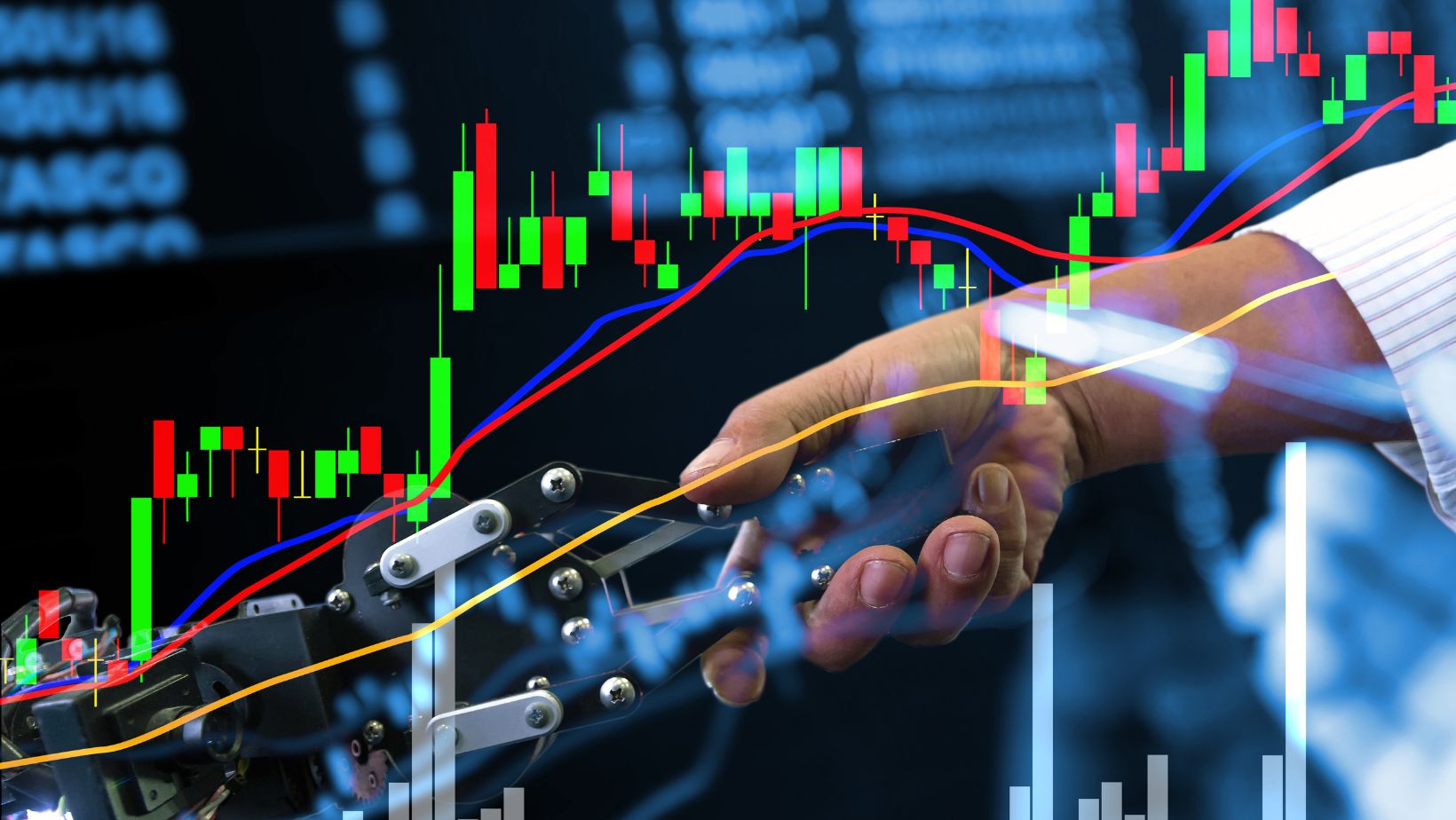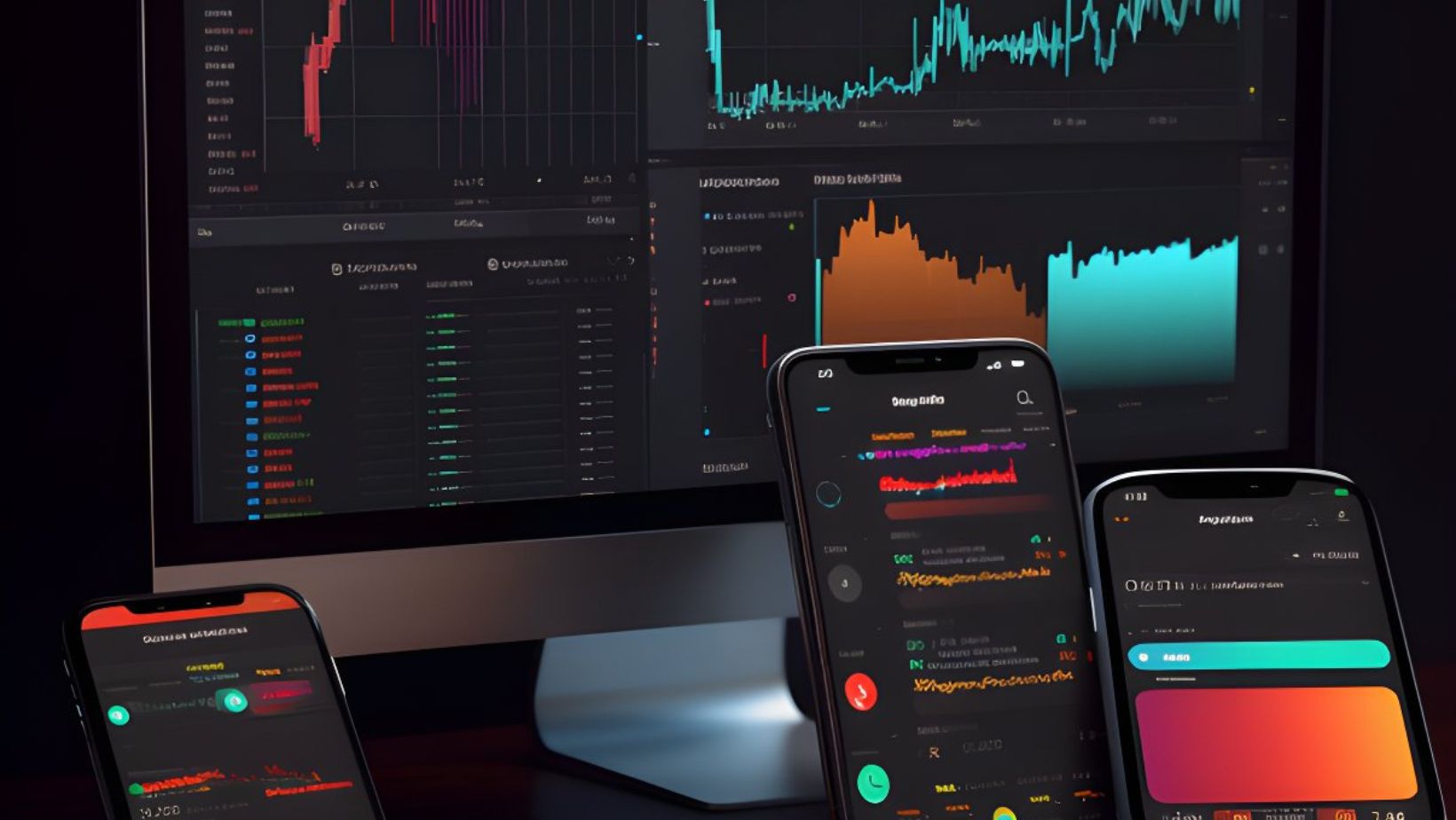In the dynamic world of stock trading, AI is becoming a game-changer. It’s revolutionizing how investors make decisions, offering real-time insights, and predicting market trends with uncanny accuracy. This article explores the fascinating world of AI stock trading apps, the new frontier in investment strategies.
AI Stock Trading Apps
What Are AI Stock Trading Apps?
AI stock trading apps utilize artificial intelligence to transform the way transactions are executed in the financial market. They’re digital platforms typically downloaded onto mobile devices. Users can access these apps anywhere, whether they’re seasoned investors or total beginners at stock trading. A typical AI stock trading app offers a variety of features. Those may include trend prediction, real-time insights, risk assessment, and personalized investment advice. Examples of these apps include Alpaca, E*TRADE, and Robinhood.
The Technology Behind AI Stock Trading
 Central to the functionality of the AI stock trading app is a mechanism known as Machine Learning (ML). ML is a subset of AI that enables systems to learn and improve from experience automatically, using predictive analytics to interpret complex data set. Reinforcement learning (a type of ML), neural networks, and natural language processing (NLP) are often employed in crafting these trading applications.
Central to the functionality of the AI stock trading app is a mechanism known as Machine Learning (ML). ML is a subset of AI that enables systems to learn and improve from experience automatically, using predictive analytics to interpret complex data set. Reinforcement learning (a type of ML), neural networks, and natural language processing (NLP) are often employed in crafting these trading applications.
Predictive analytics allows the system to analyze historical and real-time market data and make predictions about future trends. Reinforcement learning, on the other hand, lets the system learn the best trading tactics by attributing rewards and penalties for different actions.
Neural networks emulate the human brain’s neurons. They’re used to recognize patterns that humans might miss. NLP comes into play in sentiment analysis, often used to gauge market sentiment by processing news articles or social media posts.
Key Features of Leading AI Stock Trading Apps
Automated Trading Algorithms
A prime feature differentiating AI stock trading apps from their conventional counterparts lies in automated trading algorithms. These algorithms, built on advanced machine learning models, allow investors to set parameters for buying and selling stocks and execute trades automatically. They analyze vast quantities of data, from current market trends to historical price movements. With the use of predictive models, they anticipate market behavior, thus marking the pathway for automatic, precise, and timely trading decisions. Apps like Alpaca and Robinhood, incorporate these automated trading algorithms to enhance user experience and investment success rates.
Benefits of Using AI Stock Trading Apps
 AI stock trading apps bring a plethora of merits to investors. Primarily, these apps grant the ability to trade any time – a significant advantage for global stock market players with different time zones. Also, users benefit from real-time insights, enabling them to make well-informed decisions.
AI stock trading apps bring a plethora of merits to investors. Primarily, these apps grant the ability to trade any time – a significant advantage for global stock market players with different time zones. Also, users benefit from real-time insights, enabling them to make well-informed decisions.
On another note, AI-powered predictive models play an instrumental role. For instance, they forecast market trends, equipping users with reliable predictions to gauge their trading strategies effectively. Moreover, automatic trading based on set parameters eliminates human emotional biases, ensuring more rational and consistent trading behaviors.
Lastly, AI stock trading apps hand over personalized investment advice, bridging the gap between complex financial advice and layman investors. These benefits lead to a more efficient, informed, and streamlined trading process, proving the worth of AI stock trading apps.
Challenges and Considerations
 Despite the many advantages of AI stock trading apps, various challenges and considerations surround their use. Security concerns arise due to the digital nature of these platforms. They’re more susceptible to hacking attempts and data breaches. The complexity of AI models can make it difficult for the average user to fully understand and utilize advanced features. Additionally, AI systems aren’t infallible and may make errors in prediction of trends. Regulatory challenges related to the use of AI for financial transactions also exist, with the legal framework struggling to adapt to the rapidly advancing technology.
Despite the many advantages of AI stock trading apps, various challenges and considerations surround their use. Security concerns arise due to the digital nature of these platforms. They’re more susceptible to hacking attempts and data breaches. The complexity of AI models can make it difficult for the average user to fully understand and utilize advanced features. Additionally, AI systems aren’t infallible and may make errors in prediction of trends. Regulatory challenges related to the use of AI for financial transactions also exist, with the legal framework struggling to adapt to the rapidly advancing technology.
Choosing the Right AI Stock Trading App
AI stock trading apps are a game-changer in the financial world. They’re transforming the way we trade, offering advanced market analysis and optimized strategies. Yet, it’s vital to approach these tools with a discerning eye. Despite the allure of real-time insights and trend predictions, users must be mindful of potential pitfalls. These include security risks, complexity, AI prediction errors, regulatory challenges, and the absence of human intuition.



